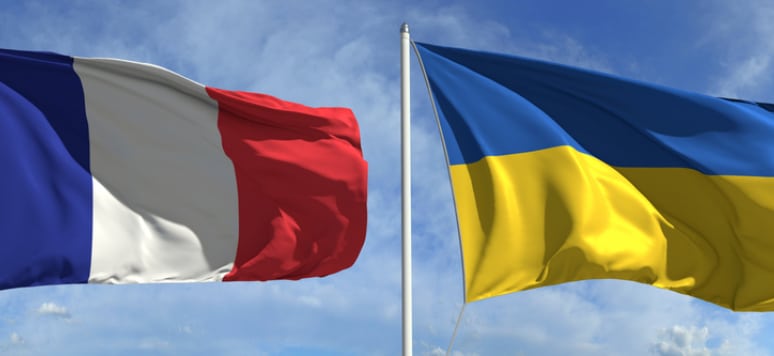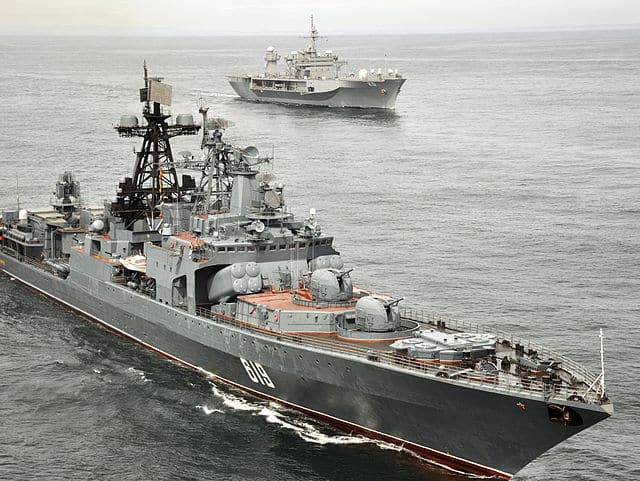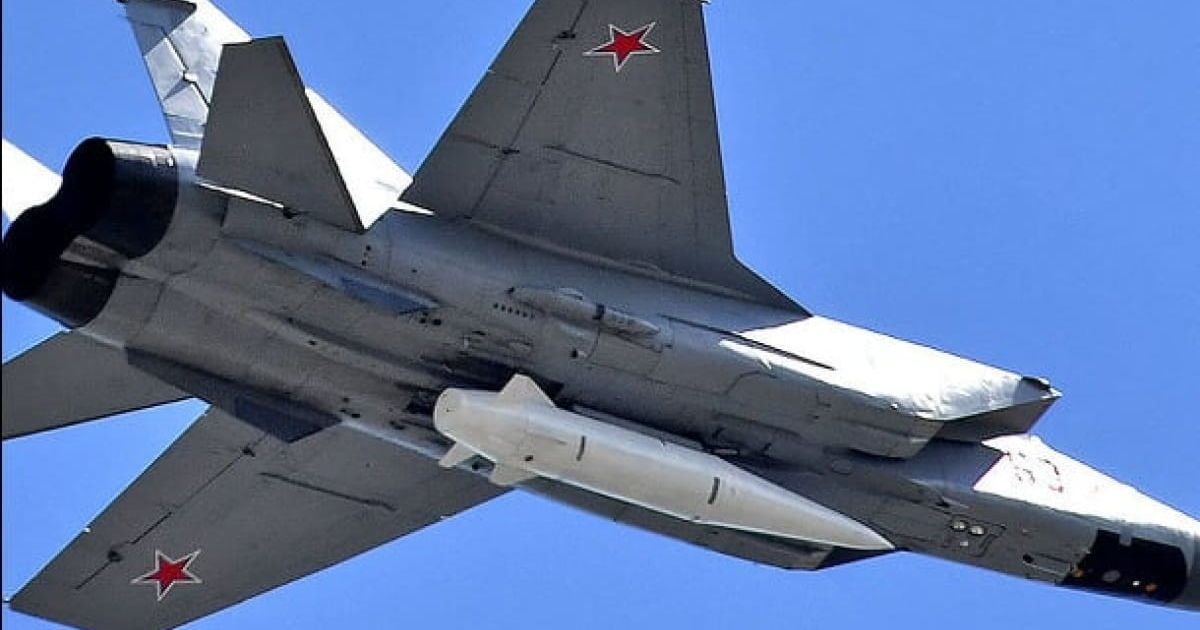Table of Contents
“Maybe Ukraine will be here again,” that’s what residents of the occupied Crimea said to Ukrainska Pravda (news outlet) last autumn when the talk was about a possible counterattack by the Armed Forces of Ukraine.
There is unrest on the peninsula. The occupying authorities increasingly complain about explosions and attacks by Ukrainian drones, while the Main Intelligence Directorate of Ukraine promises that in 2023 our army will enter Crimea.
The rhetoric of “no panic” directly contradicts the actions of the so-called “head” of Crimea, Sergey Aksyonov. He actively builds fortifications and creates private armies to send soldiers to war and protect the occupied administrations and local businesses.
To date, he has established two volunteer battalions on the peninsula: Tavryda and Livadiya. Both are focused on important directions for Russian troops — Kherson and Zaporizhzhia, which lead to the annexed Crimea.
Russian propagandists have already baptized the combat wing as Aksyonov’s military personnel. The majority of them are closely associated with Russian Cossacks, security structures, and took part in the annexation of the peninsula in 2014.
This article reveals more details about private armies.
Tavryda, Sevastopol, and Black Sea Cossack Host
The Tavryda Battalion is a unit of Russian Cossacks. It operates under the leadership of the assistant to the “head” of Crimea and the ataman of the Black Sea Cossack Host, Anton Syrotkin.
Prior to 2014, Syrotkin was a member of Sergey Aksyonov’s party, Russian Unity, actively supporting the annexation of the peninsula by the Russian Federation and organizing self-defense groups. Since 2014, he has been a member of the United Russia party and was elected to the Simferopol City Council. In 2021, Russian President Vladimir Putin appointed him as the head of the Black Sea Cossack Host, by his decree.
His deputy and commander of the reconnaissance unit of the “forces” is Andriy Dolzhenko. In an interview with Russian propagandists, Dolzhenko revealed that he was personally invited to the position by Syrotkin, citing his combat experience.
“Since I have been serving as a volunteer in Donbas since 2014, I had many comrades with military and reconnaissance experience, so we quickly coped with the assigned task and created a professional group,” Dolzhenko said.
He also added that thanks to his “extensive experience and service in the “DPR” (Donetsk People’s Republic),” the reconnaissance unit has deployed a “large intelligence network in Ukraine.”
Among the representatives of Tavryda are also the commandant Mykhailo Grydniev, also known as Donets, the chief of staff Viacheslav Tokmakov, also known as Maestro, and Oleg Abalakov.
Maestro, during a broadcast on one of the television channels, stated that at the beginning of the full-scale war, the Tavryda members had a conflict with the regular Russian army, but later the Russian military understood that it was “better to leave the private military company (PMC) alone.”
“We immediately set conditions: gentlemen, you give us the task and the deadline. And as for the means and forces — allow us, we will handle it all ourselves,” Maestro recounted the cooperation between volunteer battalions, PMC, and the regular Russian army.
A separate combat wing of Tavryda is the Sevastopol assault company, led by Oleg Hasanov.
A native of Sevastopol, he was a member of the “self-defense” that supported Russia’s annexation of the peninsula, and organized Anti-Maidan actions in Crimea and Kyiv. In recent years, he was a member of the Public Chamber of Sevastopol.
The main composition of these formations consists of Russian Cossacks and former anti-Maidan activists who participated in the annexation of the peninsula. Currently, they are engaged in combat in the occupied part of the Zaporizhzhia region, specifically in Vasylivka and near Enerhodar.
The Black Sea Cossack Host was formed in 2020 and became part of the All-Russian Cossack Community led by Mykola Doluda.
The latter is of Ukrainian origin. In February 2014, he organized the invasion of approximately a thousand individuals from the Krasnodar Krai territory into the Autonomous Republic of Crimea with the aim of deploying and supporting the pro-Moscow separatist movement on the peninsula and other territories of Ukraine.
Furthermore, the Russian Orthodox Church takes care of the Cossacks, and in the dioceses, there are corresponding units for interaction with the Cossacks. The head of this direction is Metropolitan Kirill of Stavropol and Nevinnomyssk.
They also publish a newspaper Black Sea Cossack Herald in occupied Crimea, and there are youth organizations that militarize the younger generation.
Livadiya, Konvoy, and ex-Wagner soldier
The Livadiya unit is a volunteer battalion formed by Aksyonov, whose fighters sign dual contracts with the private military company Konvoy and the military organization BARS-30. It is part of the 150th Motor Rifle Division, Military Unit 22179, located in the Rostov region. This is confirmed by documents that the fighters themselves have published on a Telegram channel.
The 150th Motor Rifle Division is a well-known unit in Russia, which was formed in 1943 and participated in the storming of the Reichstag. Until recently, it was led by General Oleg Mityaev. According to information from Ukrainian military sources, they eliminated him near Mariupol in March of last year. Ukrainian troops captured their division’s assault flag in the Kharkiv region, which was used as the “main symbol of victory in the Great Patriotic War” during Moscow parades on May 9.
Livadiya fighters also spoke about their work in the Zaporizhzhia sector. And the unit’s reconnaissance company, the Convoy PMC, is in the Kherson region. Russian propagandists filmed a report about their life in the trenches.
The Konvoy group is led by Konstantin Pikalov, also known as Mazay. Independent investigators from Bellingcat and Insider have reported on his involvement with the Wagner PMC, his knowledge of the killing of journalists in the Central African Republic in the summer of 2018, and his role in overseeing elections in Serbia.
According to their findings, Pikalov made multiple trips to the Russian-Ukrainian border from 2014 to 2017, accompanied by Wagner PMC’s personnel.
Furthermore, in September 2014, he traveled to Belgrade and from there to the capital of the Republika Srpska, where presidential elections were taking place in one of the administrative units of Bosnia and Herzegovina.
At that time, Russia was supporting the incumbent president Milorad Dodik. During that time, a detachment of nearly a hundred people dressed as Don Cossacks arrived in Banja Luka, claiming to have come to perform traditional Cossack dances.
Pikalov is the head of the Konvoy company, among the founders of which is the St. Petersburg City Cossack Society Konvoy, also led by Mazay.
However, he has quite an extensive biography and is connected not only with Putin’s “chef” but also with other influential friends of the Russian president. This is evidenced by relevant data from the register of legal entities.
See also: Russia plans to create a new «elite» aviation group Storm with direct subordination to Moscow
Since the early 2000s, Pikalov has been actively involved in security and investigative activities. Through the company Security and Investigative Agency, he was associated with Russian businessman Vladimir Vasilyev, the owner of several corporations in Russia.
As noted by Russian journalists, the main clients of these security companies are Gazprom Transgaz Saint Petersburg and the football club Zenit.
There is a long-time comrade of Mazay Vasyl Yashchikov, who considers himself a “descendant” of the Cossacks among the so-called press service of Konvoy. He periodically shares reports from the frontlines and interviews with fighters within the Konvoy group. He was also present in Serbia during the 2014 elections based on photos on social media.
In addition, Yashchikov participated in the beating of participants of the opposition rally “He is not our tsar” in May 2018 in Moscow, which was initiated by Alexei Navalny and dedicated to the inauguration of Vladimir Putin.
In addition to the protesters, several dozen representatives of the Russian Cossacks in camouflage uniforms came to the monument to Pushkin in Moscow.
As independent Russian journalists wrote at the time, these organizations had been receiving tens of millions of rubles from the Moscow City Hall and the Ministry of Culture for three years to “protect public order” and “implement the Cossack culture program.” However, the Cossacks themselves, including Yashchikov, claimed that this was not an order from the authorities: they were provoked on the square by activists, and they themselves simply came to watch the rally.
The opposition claimed that this was not the case, and that the Cossacks had been acting together with Special Purposes Mobile Unit from the very beginning and were trying to disperse the peaceful protest.
At the initiative of the Russian president, the Cossacks are indeed involved in public order protection in Russia. In 2021, Putin also supported the idea of involving the Cossacks in the National Guard of Russia.
In addition to that, the Konvoy members were spotted at the congress of the Liberal Democratic Party of Russia (LDPR) led by Leonid Slutsky, which recently welcomed the newly exchanged Viktor But as a member.
Money, training, weapons
On Russian television channels, Aksyonov’s military personnel claim that their funding and equipment are currently provided personally by the “head” of Crimea, Sergey Aksyonov.
However, according to representatives of the Main Intelligence Directorate who provided us with a comment, the sources of funding are broader. It includes the Russian Ministry of Defense and Crimean businessmen.
“We know that Aksyonov gathered Crimean businessmen and forced them to raise funds for financing this private military company. On the one hand, they are compelled to do so, but on the other hand, they also want to protect themselves and their assets. They are guaranteed that in case of anything, they will be evacuated, and everything will be fine,” says Andriy Chernyak, a representative of Defense Intelligence.
According to Ukrainian Intelligence, Aksyonov’s military personnel are offered payments ranging from 200,000 to 250,000 rubles (approximately 100,000 hryvnias) per month. There are several recruitment methods, including amnesty for prisoners, recruitment into private military companies, and mobilization.
“They tried to recruit them among prisoners. But after Prigozhin did that, and they realized that they were being released to be sent to their death, now Russian prisoners are not very willing to go and fight. So, they recruit them among the mobilized individuals, create dual contracts with private military companies and the Ministry of Defense. They primarily try to involve the population of Crimea, but they also conduct activities throughout the territory of Russia. They are not in competition with Wagner, although they often intersect during the recruitment of fighters,” says Andriy Chernyak.
According to information from Defense Intelligence, Aksyonov’s units have professionally trained individuals who have participated in many wars. However, this mainly refers to the leadership structure.
The training of Aksyonov’s military personnel takes place at the Crimean military base in Perevalne (which was previously the location of Ukrainian marine infantry until 2014) and in the occupied part of the Kherson region. Experienced instructors are involved in their training.
“These are former servicemen of special units of the Russian Federation, such as the Main Intelligence Directorate, Federal Security Service, and National Guard of Russia. These are the people who served, and participated in combat operations, and wars. Now they have been discharged and have joined private military companies. They receive special treatment and have completely different salaries, starting from $5,000 and higher. They are not sent to the combat zone but are recruited to share their experience,” says Andriy Chernyak.
Aksyonov’s units are well-equipped with weapons, artillery and light armored vehicles.
The Defense Intelligence assures that, despite the name Aksyonov’s military personnel, all these units are controlled by the Russian special services and the Russian army: “In totalitarian Russia, there cannot be any militarized units that are not subordinated to the security forces.”
Territorial Defense Forces and other combat groups
In addition to combat units, Territorial Defense Forces are also being formed in Crimea. According to the same assistant of the self-proclaimed “head of Crimea,” Anton Syrotkin, approximately 5,000 residents of the Crimean peninsula have already undergone relevant training.
“To ensure maximum protection of the peninsula from threats and challenges along possible confrontation lines and potential enemy breakthrough directions, fortified areas are being constructed, layered defenses are implemented, and conditional formation of the territorial defense of Crimea, which receives special training, is being conducted,” said Syrotkin in an interview with Russian propagandists in April.
These are units primarily engaged in patrols and will be responsible for guarding local administrations and businesses.
The Crimean peninsula is currently patrolled jointly with the police by the Hockey Club Vityaz Moscow Region led by Igor Zolotarev, the Youth Union of Cossacks led by Yuriy Minikh, and Farm Cossak Society Phoenix led by Serhiy Barkovsky. In addition to security duties, these formations are also involved in “patriotic education of children” by organizing special Cossack schools and lessons on “the basics of Cossack culture.”
In total, according to our analysis, at least 10 Cossack units are involved in Russia’s war against Ukraine. Russian troops themselves report that their number is about 16 thousand people:
- Unified Cossack Brigade (Don, Yermak, Kuban, Tavryda, Yenisei).
- Battalions Terek, Scythian, Siberia.
- Battalions Tiger, Steppe, Forstadt.
- 1st Zakhary Chepiha Volunteer Cossack Squad.
“They understand that there will be fighting in Crimea”
The Main Intelligence Directorate of the Ministry of Defense of Ukraine is convinced that the main reason for the emergence of the Aksyonov’s units is the fear of a counteroffensive by the Armed Forces of Ukraine.
“They clearly understand that there will be combat operations on the territory of Crimea, and they are currently constructing fortifications, defensive lines not only in Crimea but also in the southern part of Kherson region,” says Andriy Chernyak.
“These private armies were created to protect the occupation administrations because they are not sure that the Russian armed forces will be able to protect them. And secondly, they are not confident in the integrity of the Russian Federation. If Russia starts to fall apart, they have PMCs that will protect their wealth and families.”
In addition to creating private armies and fortifications, internal work is also being carried out in Crimea with the pro-Ukrainian population.
“They are conducting filtration measures to identify and pressure individuals who support the idea that “Crimea is Ukraine”,” says Chernyak.
In his opinion, promoting their army in Russian media is necessary for Aksyonov and others to demonstrate that they are also part of the political elite.
But there is a lack of trust among the so-called “leaders” of the occupied Ukrainian regions.
“They are temporarily forced to be in the same boat and they seek victory for their own political and economic gains. However, they are far from being friends. That’s why they are trying to build separate structures. And if there are any questions or conflicts between them, these private military companies will compete with each other,” says the Main Intelligence Directorate.
Currently, active recruitment of Aksyonov’s units is ongoing in Crimea and on the territory of the Russian Federation.
Summer is approaching. However, the Armed Forces of Ukraine warn that this year’s “resort season” in Crimea is declared a “season of explosions.” Therefore, Russians living and vacationing in the occupied peninsula should get used to air alarms and explosions.
The Main Intelligence Directorate of Ukraine has repeatedly stated that Ukrainian military will be present in Crimea, and President of Ukraine Volodymyr Zelenskyy has emphasized on multiple occasions that “only by reclaiming Crimea will we restore peace.”
Originally posted by Victoria Roshchyna on Ukrainska Pravda. Translated and edited by the UaPosition – Ukrainian news and analytics website
See also: Ukraine is not Vietnam: why Russians are willing to kill “their boys” endlessly




